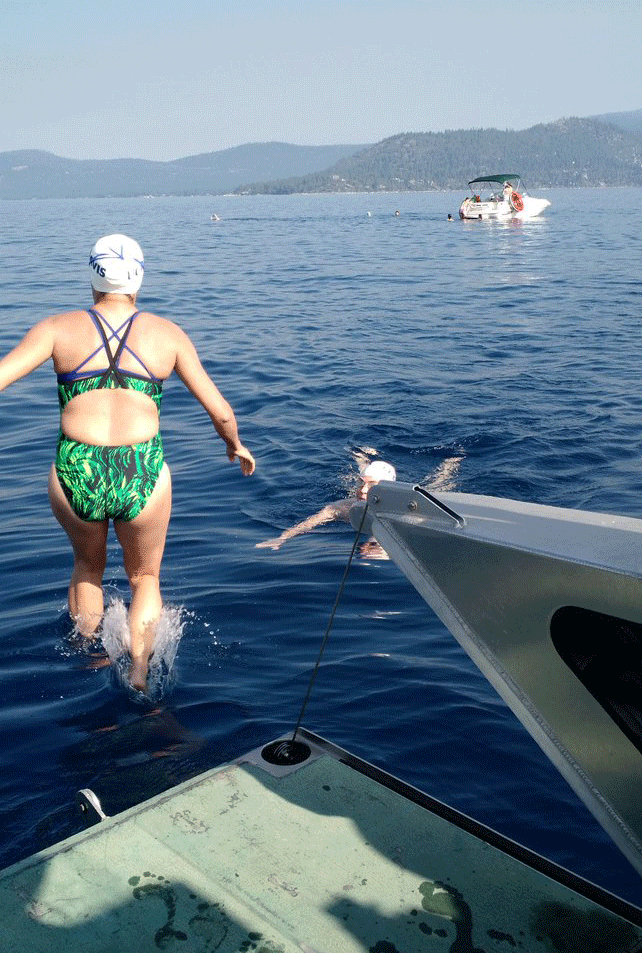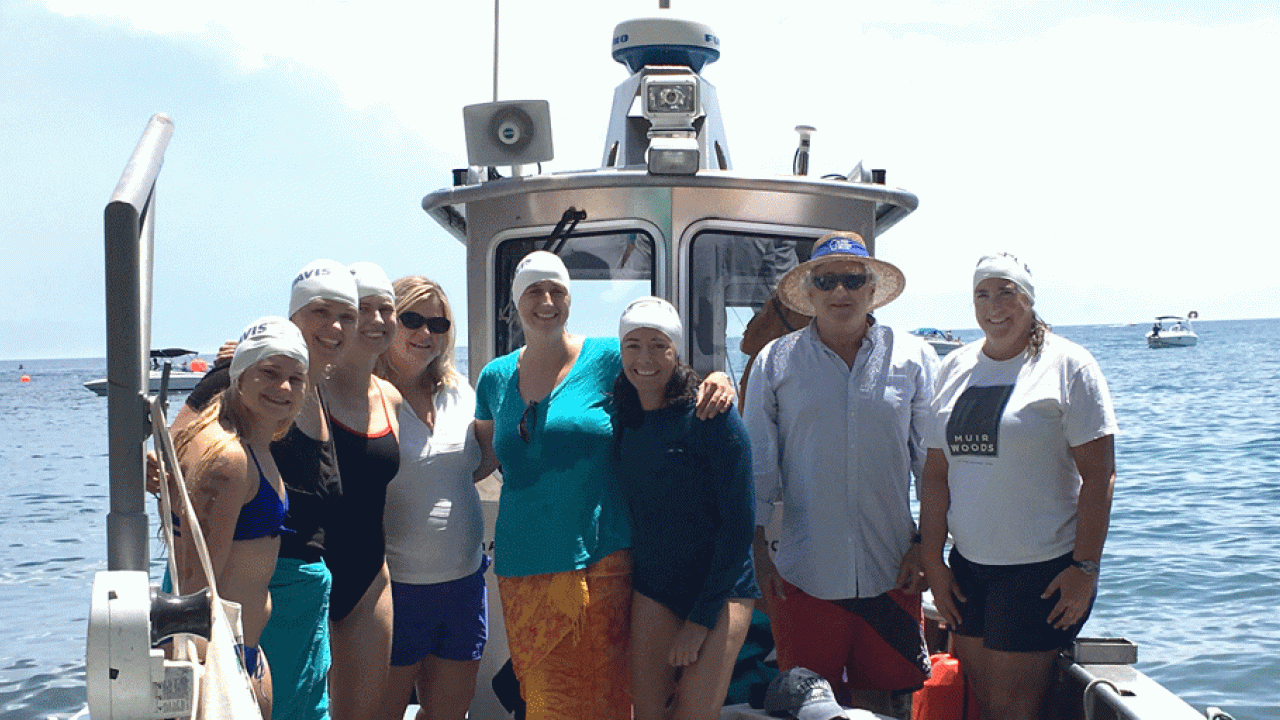“The swim reminded us why we love water science and research,” Ann Willis says about Saturday’s 42nd annual Trans Tahoe Relay that she completed with five other UC Davis women.
HOW TO DONATE
These links will take you to UC Davis Giving webpages:
They plunged into Lake Tahoe on a sunny and warm July 21 as Women for Water Research II, inviting people to support their cause by donating to the university’s Tahoe Environmental Research Center, or TERC, and-or the Center for Watershed Sciences.
The 2018 team followed the inaugural Women for Water Research who completed the no-wetsuits-allowed relay a year ago with three UC Davis affiliates (all faculty members) occupying half the team slots. This year’s team was all-UC Davis:
- Heather Bischel, assistant professor, Department of Civil and Environmental Engineering
- Roberta Millstein, professor, Department of Philosophy
- Verónica Morales, assistant professor, Department of Civil and Environmental Engineering
- Kelly Neal, an undergraduate, majoring in wildlife, fish and conservation biology
- Kate Tiedeman, doctoral candidate in ecology
- Willis, the team captain, a graduate student in civil engineering and a staff researcher at the Center for Watershed Sciences
The team also included Geoff Schladow, professor and director of the Tahoe Environmental Research Center, who captained the team’s support boat, TERC’s R/V (research vessel) Bob Roberts. Neal went first for Women in Water Research II, swimming for 30 minutes, and her teammates followed one by one with their own 30-minute first legs. After that it was 10-minute legs, in the same order, until the finish.

Women for Water Research II (with three Davis Aquatic Masters — Millstein, Neal and Willis — among their number) set out from Sand Harbor Beach on the Nevada side of the lake at 7:40 a.m. and finished at Skylandia Beach near Tahoe City in 5 hours, 40 minutes and 25 seconds. But this wasn’t about the time.
“Tahoe is an unmistakably beautiful place, and I loved being immersed in Tahoe's gorgeous inky blue and kept thinking about what a privilege it is to be able to go there so easily,” Willis told Dateline UC Davis.
“But our experience was greatly enhanced by what science has taught us about the lake,” she said. For example, knowing how deep it is, that it's so large that it has currents, that its clarity is unique and world-renowned.
“invigorating,” she added, “but definitely chilly enough to keep us swimming!” The relay website advised swimmers that the water temperature on relay day typically ranges from 55 to 60 degrees F.
“Knowing all those things helped us experience the lake on a much deeper level,” Willis said.
And they are ready to go again next year: “We all plan to celebrate the opportunity we got to swim across the lake by doing it again next year.”
Media Resources
Dave Jones, 530-752-6556, dljones@ucdavis.edu
